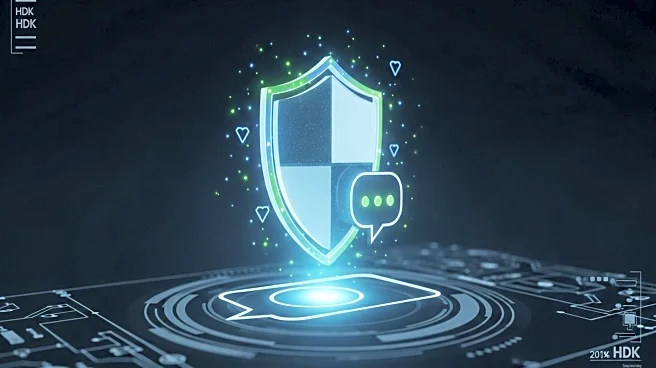What's Happening?
OpenAI has introduced new parental controls for ChatGPT, allowing parents to manage their children's use of the chatbot. These controls come amid concerns about the potential dangers of AI chatbots for young users. Parents can now set quiet hours, block image generation, and receive alerts if their child is at risk of self-harm. The changes follow a lawsuit alleging that ChatGPT contributed to a teenager's suicide. OpenAI emphasizes that these measures are part of a broader effort to enhance child safety and address mental health concerns.
Why It's Important?
The implementation of these controls is crucial in addressing the growing concerns about AI's impact on children and teenagers. By providing parents with tools to manage their children's interactions with ChatGPT, OpenAI is taking a proactive approach to safeguarding young users. This move could set a precedent for other AI companies, prompting them to adopt similar measures. The changes also highlight the need for ongoing dialogue about the ethical responsibilities of AI developers in protecting vulnerable populations.
What's Next?
OpenAI plans to continue refining its safety features, including developing an age-prediction system to restrict sensitive content for underage users. The company is also considering more robust age verification methods. As these initiatives progress, OpenAI may face increased scrutiny from regulators and advocacy groups, which could lead to further adjustments in its approach to user safety. The company's efforts to address these concerns will be closely watched by industry stakeholders and could influence future regulatory developments.








